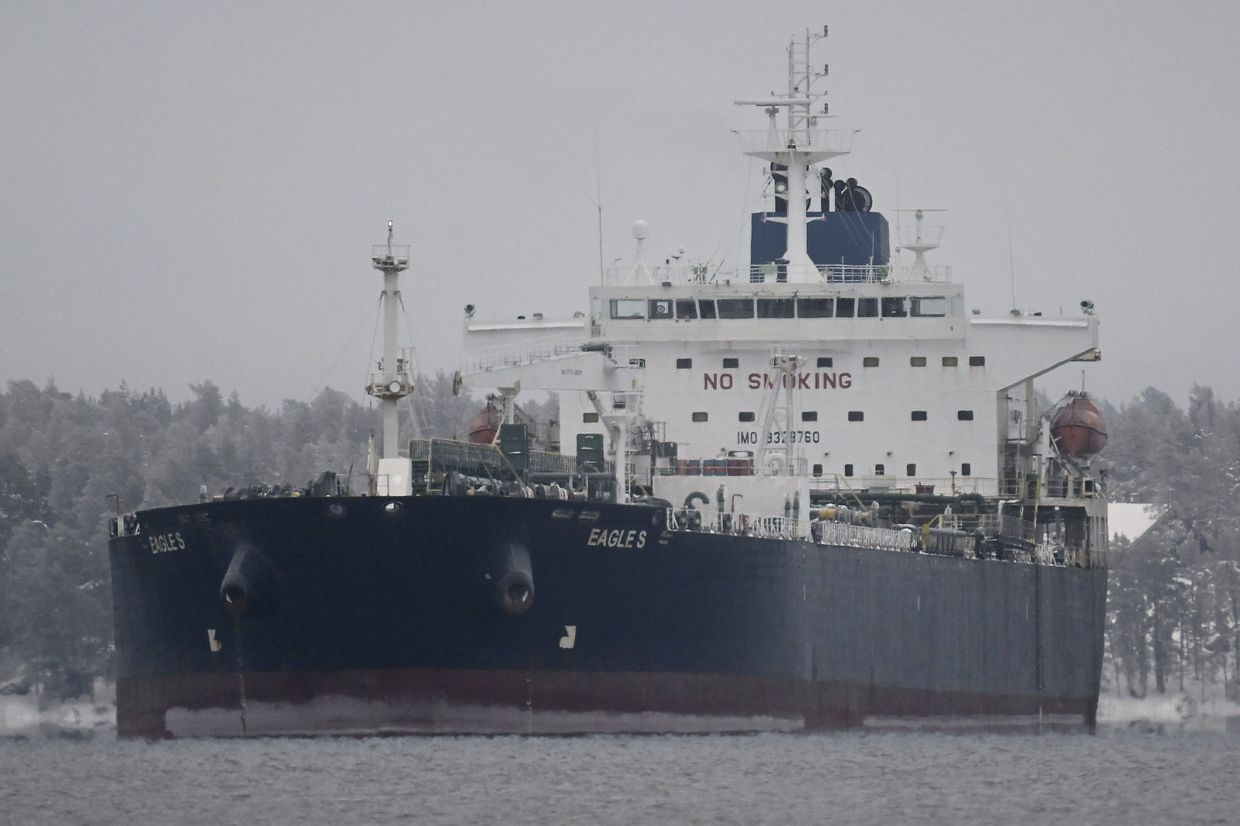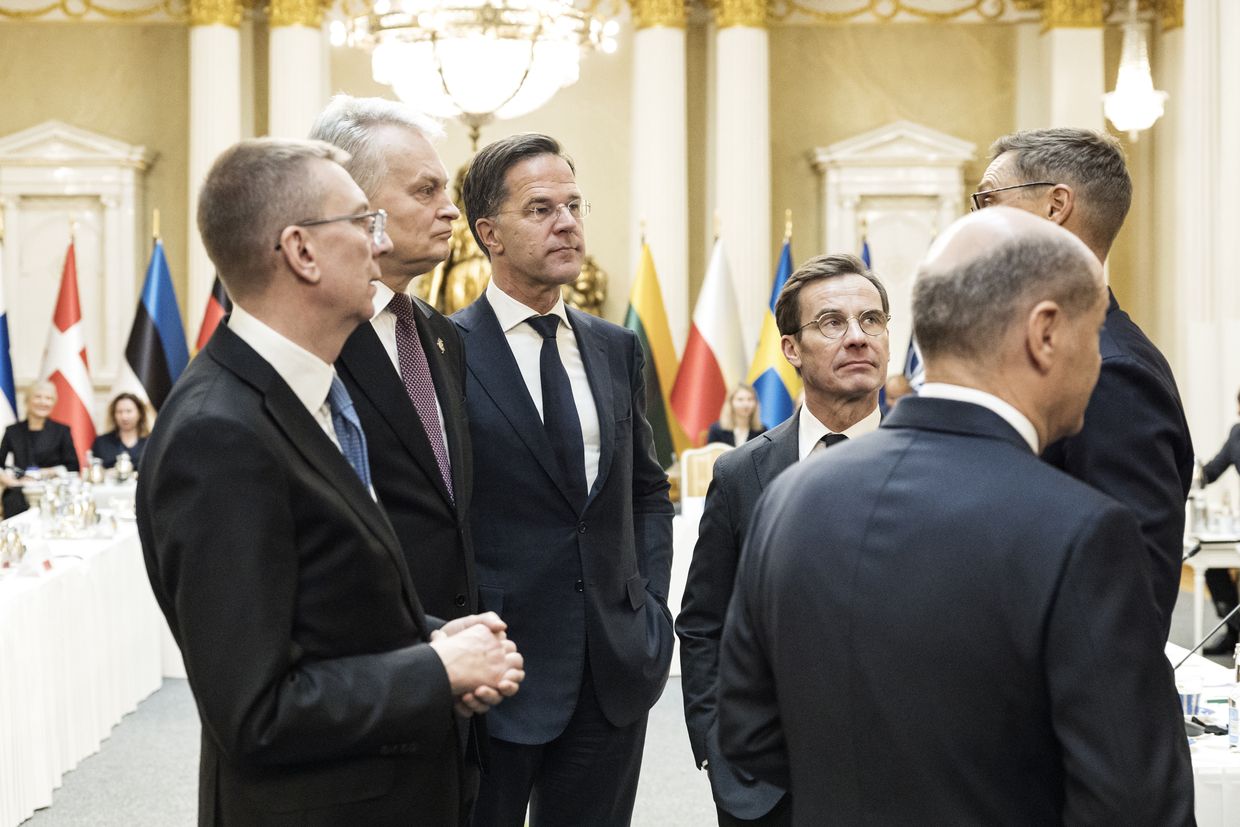
Russia’s Baltic Sea sabotage is no accident, it’s strategy
Intelligence officials in the U.S. and Europe have suggested that recent incidents damaging critical cables in the Baltic Sea were accidental, according to a Washington Post report. Western geostrategic self-deception has overly emphasized fears of escalation and cornering Russia. It would be naïve to assume that the repeated cutting of cables in the Baltic Sea, along with the recent leak, is purely accidental. Persistent incidents of “poor seamanship” in one of the world’s most strategically significant maritime environments cannot be easily dismissed.
Some within the Western foreign policy establishment may believe that this assessment signals de-escalation and patience toward Russia — particularly with Donald Trump poised to take office. For them, the recently announced NATO operation in the Baltic is framed as mere maritime traffic control and accident prevention, requiring a more militarized presence for the sake of efficiency. The leak aligns with an unfortunate pattern of de-escalatory signaling to Russia. Yet others see the pattern of shadow fleet accidents as deliberate provocations with deeper geostrategic motivations, reflecting a tendency to escalate.
A reasonable alternative to the “accidents happen” explanation is that the current and past incidents, which remain under investigation due to the inherent deniability, are the result of deliberate malice. Instead of downplaying these actions, a strong message of strategic resolve must be sent to Moscow. The cable-cutting occurred due to the self-evident, deliberate, and negligent actions of Russia’s shadow fleet. While tactical leaks to the media may ease tensions, they only do so for the intended audience. For Russia, however, these leaks signal Western discord, encouraging both recklessness and further sabotage.
A reasonable alternative to the “accidents happen” explanation is that the current and past incidents are the result of deliberate malice.
There are clear geopolitical reasons for giving Russia the benefit of the doubt when it comes to these sabotage incidents. The investigation is challenging and may not produce conclusive evidence. Authorities may want the issue to disappear to avoid unwanted attention and scrutiny. Moreover, the situation drains already limited military resources, and some countries are less motivated to escalate tensions in the Baltic Sea, particularly with elections on the horizon. However, putting too much emphasis on these concerns risks provoking further Russian aggression and weakening deterrence. As the Finns say, “The Russians will keep pushing with their bayonet until it hits something hard.”
Another Finnish saying, from their geopolitically pressured times, is that “Moscow is not a district court.” Russia respects the law only when it benefits them or when forced to do so, while Finland has always been committed to international law. Investigations are being conducted as thoroughly as possible, but conclusive attribution is difficult, as seen in numerous other suspected instances of Russian sabotage across Europe and North America. While the intent remains hard to establish, that shouldn’t lead to granting Russia an implicit plea deal or allowing them to escape accountability.
It’s essential to see the forest for the trees. The repeated reckless actions by Russia should already be alarming enough to warrant countermeasures. The precautionary principle demands the establishment of deterrence.
NATO has contributed to this by launching the Baltic Sentry operation. NATO Secretary General Mark Rutte initiated the summit in Helsinki last week. Although not all NATO countries were invited, it was not just a Nordic-Baltic effort. More than half of Russia’s energy exports pass through a critical corridor from St. Petersburg, through the narrow Gulf, and into the Danish Straits.
If Russia’s recklessness continues, this vital corridor, which allows for innocent passage, must be tightened. Legal measures to restrict this main artery include environmental, seaworthiness, and insurance inspections. The United Nations' maritime convention, UNCLOS, also provides valuable alternatives. If Russia continues to abuse the line between war and peace, other legal frameworks, beyond UNCLOS, could become actionable.
Russia views the Black, Baltic, and Arctic Seas as part of a unified geopolitical theater. The West should not engage in petty tactics like selective intelligence leaks. These are highly strategic waters, which Russia considers its imperial playground. Unfortunately, Chinese-registered ships have also been involved, as the Baltic Sea may serve as a rehearsal for the maritime blockade of Taiwan. Western reactions are carefully monitored. Ultimately, the Baltic Sea incidents are about testing Russia’s defense thresholds. Leaks should not stem from minor disagreements or short-term considerations; when intelligence is leaked, it must convey a message of containment and deterrence.
Editor’s Note: The opinions expressed in the op-ed section are those of the authors and do not necessarily reflect the views of the Kyiv Independent.
















